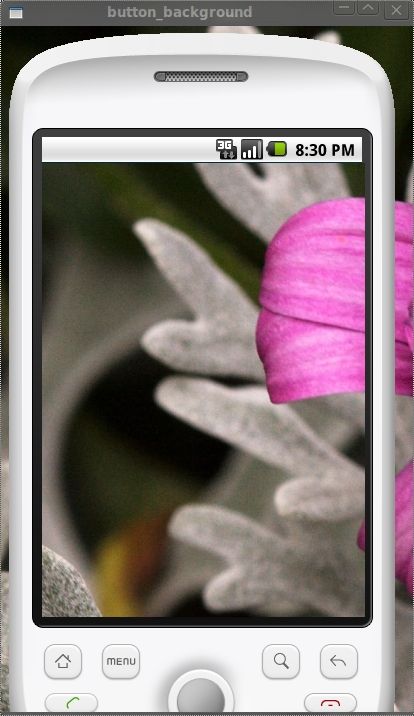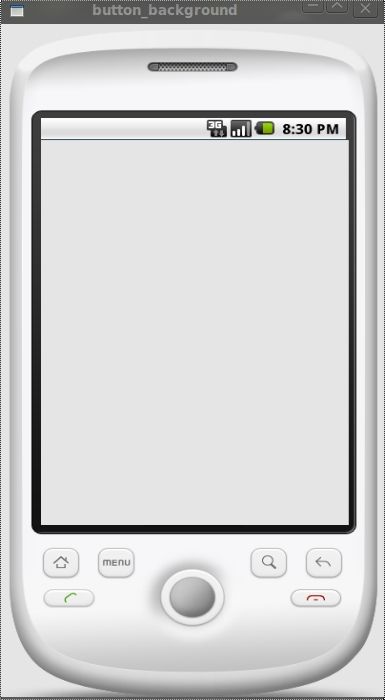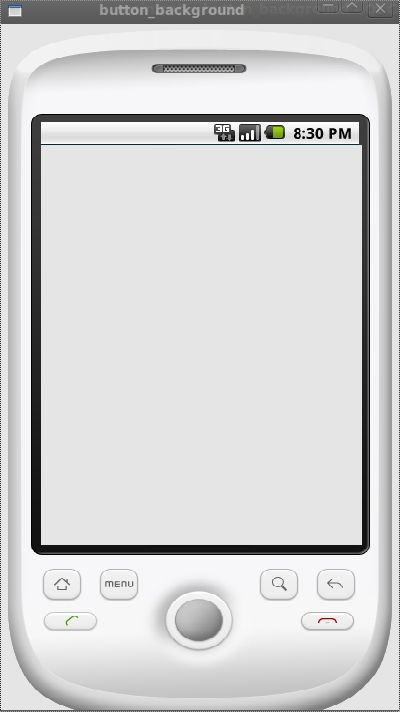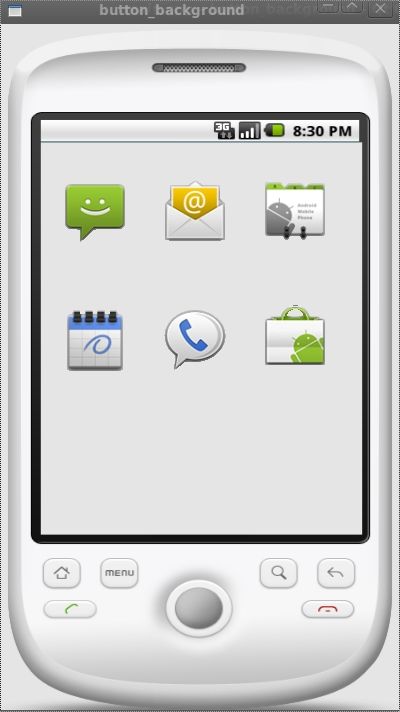工作似乎走上正轨了,上周五的工作是做一个界面,用到QFrame和QPushButton,QFrame做主面板,QPushButton为其子控件,需要在主面板上贴背景图片,还需要在QPushButton上贴上相应的图标,弄了一天,再加上今天一小会,终于有一点点结果了
 。
。
通过从Google上搜索各种方法(现在才知道Google比Baidu强大很多啊),最后都试了一些,主要有下面几种方法:
1. QPalette的方法
存在问题:图片可以显示出来,但是图片大小不能和frame大小一致,显示效果不好,具体怎样调整大小,以后再补充,效果如下(设置了透明的,好像很漂亮~透明部分将我的桌面显示出来了~_~):

2.setStyleSheet方法(非常好用的方法)

注意:很漂亮的效果吧~~注意代码中红线的部分噢,设置 ObjectName后,才能保证set StyleSheet只作用在我们的frame上,不影响其子控件的背景设置。之所以用border-image而不用background-image,还是上面的问题,用background-image不能保证图片大小和控件大小一致,图片不能完全显示,这个以后再补充了,现在还没有找到方法。
3.paintEvent事件方法

注:跟前面一样的效果吧,与前面的差别就是这个背景图片不随着窗口的大小而变化,因为它的固定大小被设置成(400,700)了。重写QWidget的paintEvent事件,当控件发生重绘事件,比如show()时,系统就会自动调用paintEvent函数。
好了,上面是三种设置背景图片的方法,下面我要说一个设置QPushButton的背景图片的方法,用的是setIcon方法(其实QPushButton设置背景图片也可以用前面三种方法的,不过现在这种Icon方法的看起来也不错)

注:图标效果不错吧~_~
好了,今天就写到这里,以后有新的内容再补充。
补充,这样就可以让图片跟窗口一样大小了。
通过从Google上搜索各种方法(现在才知道Google比Baidu强大很多啊),最后都试了一些,主要有下面几种方法:
1. QPalette的方法
#include
<
QApplication
>
#include < QtGui >
int main( int argc, char * argv[])
{
QApplication app(argc,argv);
QFrame * frame = new QFrame;
frame -> resize( 400 , 700 );
QPixmap pixmap("images/frame.png");
QPalette palette;
palette.setBrush(frame -> backgroundRole(),QBrush( pixmap ));
frame -> setPalette(palette);
frame->setMask(pixmap.mask()); //可以将图片中透明部分显示为透明的
frame -> setAutoFillBackground( true );
frame -> show();
return app.exec();
}
注意图片路径怎么表示,我的图片放在该工程下的images文件夹中。
#include < QtGui >
int main( int argc, char * argv[])
{
QApplication app(argc,argv);
QFrame * frame = new QFrame;
frame -> resize( 400 , 700 );
QPixmap pixmap("images/frame.png");
QPalette palette;
palette.setBrush(frame -> backgroundRole(),QBrush( pixmap ));
frame -> setPalette(palette);
frame->setMask(pixmap.mask()); //可以将图片中透明部分显示为透明的
frame -> setAutoFillBackground( true );
frame -> show();
return app.exec();
}
存在问题:图片可以显示出来,但是图片大小不能和frame大小一致,显示效果不好,具体怎样调整大小,以后再补充,效果如下(设置了透明的,好像很漂亮~透明部分将我的桌面显示出来了~_~):

2.setStyleSheet方法(非常好用的方法)
#include
<
QApplication
>
#include < QtGui >
int main( int argc, char * argv[])
{
QApplication app(argc,argv);
QFrame * frame = new QFrame;
frame ->setObjectName("myframe" );
frame -> resize( 400 , 700 );
frame -> setStyleSheet( " QFrame#myframe{border-image:url(images/frame.png)} " );
frame -> show();
return app.exec();
}
效果如下:
#include < QtGui >
int main( int argc, char * argv[])
{
QApplication app(argc,argv);
QFrame * frame = new QFrame;
frame ->setObjectName("myframe" );
frame -> resize( 400 , 700 );
frame -> setStyleSheet( " QFrame#myframe{border-image:url(images/frame.png)} " );
frame -> show();
return app.exec();
}

注意:很漂亮的效果吧~~注意代码中红线的部分噢,设置 ObjectName后,才能保证set StyleSheet只作用在我们的frame上,不影响其子控件的背景设置。之所以用border-image而不用background-image,还是上面的问题,用background-image不能保证图片大小和控件大小一致,图片不能完全显示,这个以后再补充了,现在还没有找到方法。
3.paintEvent事件方法
//
myframe.h文件
#ifndef MYFRAME_H
#define MYFRAME_H
#include < QWidget >
#include < QtGui >
class MyFrame : public QWidget
{
public :
MyFrame();
void paintEvent(QPaintEvent * event );
};
#endif // MYFRAME_H
// myframe.cpp文件
#include " myframe.h "
MyFrame::MyFrame()
{
}
void MyFrame::paintEvent(QPaintEvent * event )
{
QPainter painter( this );
painter.drawPixmap( 0 , 0 , 400 , 700 ,QPixmap( " images/frame.png " ));
}
// main.cpp文件
#include < QApplication >
#include < QtGui >
#include " myframe.h "
int main( int argc, char * argv[])
{
QApplication app(argc,argv);
MyFrame * frame = new MyFrame;
frame -> resize( 400 , 700 );
frame -> show();
return app.exec();
}
效果如下:#ifndef MYFRAME_H
#define MYFRAME_H
#include < QWidget >
#include < QtGui >
class MyFrame : public QWidget
{
public :
MyFrame();
void paintEvent(QPaintEvent * event );
};
#endif // MYFRAME_H
// myframe.cpp文件
#include " myframe.h "
MyFrame::MyFrame()
{
}
void MyFrame::paintEvent(QPaintEvent * event )
{
QPainter painter( this );
painter.drawPixmap( 0 , 0 , 400 , 700 ,QPixmap( " images/frame.png " ));
}
// main.cpp文件
#include < QApplication >
#include < QtGui >
#include " myframe.h "
int main( int argc, char * argv[])
{
QApplication app(argc,argv);
MyFrame * frame = new MyFrame;
frame -> resize( 400 , 700 );
frame -> show();
return app.exec();
}

注:跟前面一样的效果吧,与前面的差别就是这个背景图片不随着窗口的大小而变化,因为它的固定大小被设置成(400,700)了。重写QWidget的paintEvent事件,当控件发生重绘事件,比如show()时,系统就会自动调用paintEvent函数。
好了,上面是三种设置背景图片的方法,下面我要说一个设置QPushButton的背景图片的方法,用的是setIcon方法(其实QPushButton设置背景图片也可以用前面三种方法的,不过现在这种Icon方法的看起来也不错)
#include
<
QApplication
>
#include < QtGui >
int main( int argc, char * argv[])
{
QApplication app(argc,argv);
QFrame * frame = new QFrame;
QPushButton * button0 = new QPushButton(frame);
QPushButton * button1 = new QPushButton(frame);
QPushButton * button2 = new QPushButton(frame);
QPushButton * button3 = new QPushButton(frame);
QPushButton * button4 = new QPushButton(frame);
QPushButton * button5 = new QPushButton(frame);
frame -> setObjectName( " myframe " );
frame -> resize( 400 , 700 );
frame -> setStyleSheet( " QFrame#myframe{border-image:url(images/frame.png)} " );
button0 -> setGeometry( 60 , 150 , 68 , 68 );
button1 -> setGeometry( 160 , 150 , 68 , 68 );
button2 -> setGeometry( 260 , 150 , 68 , 68 );
button3 -> setGeometry( 60 , 280 , 68 , 68 );
button4 -> setGeometry( 160 , 280 , 68 , 68 );
button5 -> setGeometry( 260 , 280 , 68 , 68 );
QIcon icon;
QPixmap pixmap0( " images/SMS.png " );
icon.addPixmap(pixmap0);
button0 -> setIcon(icon);
button0 -> setIconSize(QSize( 68 , 68 ));
button0 -> setFixedSize(pixmap0.size());
button0 -> setMask(pixmap0.mask());
QPixmap pixmap1( " images/EMail.png " );
icon.addPixmap(pixmap1);
button1 -> setIcon(icon);
button1 -> setIconSize(QSize( 68 , 68 ));
button1 -> setFixedSize(pixmap1.size());
button1 -> setMask(pixmap1.mask());
QPixmap pixmap2( " images/Contacts.png " );
icon.addPixmap(pixmap2);
button2 -> setIcon(icon);
button2 -> setIconSize(QSize( 68 , 68 ));
button2 -> setFixedSize(pixmap2.size());
button2 -> setMask(pixmap2.mask());
QPixmap pixmap3( " images/Calendar.png " );
icon.addPixmap(pixmap3);
button3 -> setIcon(icon);
button3 -> setIconSize(QSize( 68 , 68 ));
button3 -> setFixedSize(pixmap3.size());
button3 -> setMask(pixmap3.mask());
QPixmap pixmap4( " images/GoogleVoice.png " );
icon.addPixmap(pixmap4);
button4 -> setIcon(icon);
button4 -> setIconSize(QSize( 68 , 68 ));
button4 -> setFixedSize(pixmap4.size());
button4 -> setMask(pixmap4.mask());
QPixmap pixmap5( " images/AndroidMarket.png " );
icon.addPixmap(pixmap5);
button5 -> setIcon(icon);
button5 -> setIconSize(QSize( 68 , 68 ));
button5 -> setFixedSize(pixmap5.size());
button5 -> setMask(pixmap5.mask());
frame -> show();
return app.exec();
}
效果如下:#include < QtGui >
int main( int argc, char * argv[])
{
QApplication app(argc,argv);
QFrame * frame = new QFrame;
QPushButton * button0 = new QPushButton(frame);
QPushButton * button1 = new QPushButton(frame);
QPushButton * button2 = new QPushButton(frame);
QPushButton * button3 = new QPushButton(frame);
QPushButton * button4 = new QPushButton(frame);
QPushButton * button5 = new QPushButton(frame);
frame -> setObjectName( " myframe " );
frame -> resize( 400 , 700 );
frame -> setStyleSheet( " QFrame#myframe{border-image:url(images/frame.png)} " );
button0 -> setGeometry( 60 , 150 , 68 , 68 );
button1 -> setGeometry( 160 , 150 , 68 , 68 );
button2 -> setGeometry( 260 , 150 , 68 , 68 );
button3 -> setGeometry( 60 , 280 , 68 , 68 );
button4 -> setGeometry( 160 , 280 , 68 , 68 );
button5 -> setGeometry( 260 , 280 , 68 , 68 );
QIcon icon;
QPixmap pixmap0( " images/SMS.png " );
icon.addPixmap(pixmap0);
button0 -> setIcon(icon);
button0 -> setIconSize(QSize( 68 , 68 ));
button0 -> setFixedSize(pixmap0.size());
button0 -> setMask(pixmap0.mask());
QPixmap pixmap1( " images/EMail.png " );
icon.addPixmap(pixmap1);
button1 -> setIcon(icon);
button1 -> setIconSize(QSize( 68 , 68 ));
button1 -> setFixedSize(pixmap1.size());
button1 -> setMask(pixmap1.mask());
QPixmap pixmap2( " images/Contacts.png " );
icon.addPixmap(pixmap2);
button2 -> setIcon(icon);
button2 -> setIconSize(QSize( 68 , 68 ));
button2 -> setFixedSize(pixmap2.size());
button2 -> setMask(pixmap2.mask());
QPixmap pixmap3( " images/Calendar.png " );
icon.addPixmap(pixmap3);
button3 -> setIcon(icon);
button3 -> setIconSize(QSize( 68 , 68 ));
button3 -> setFixedSize(pixmap3.size());
button3 -> setMask(pixmap3.mask());
QPixmap pixmap4( " images/GoogleVoice.png " );
icon.addPixmap(pixmap4);
button4 -> setIcon(icon);
button4 -> setIconSize(QSize( 68 , 68 ));
button4 -> setFixedSize(pixmap4.size());
button4 -> setMask(pixmap4.mask());
QPixmap pixmap5( " images/AndroidMarket.png " );
icon.addPixmap(pixmap5);
button5 -> setIcon(icon);
button5 -> setIconSize(QSize( 68 , 68 ));
button5 -> setFixedSize(pixmap5.size());
button5 -> setMask(pixmap5.mask());
frame -> show();
return app.exec();
}

注:图标效果不错吧~_~
好了,今天就写到这里,以后有新的内容再补充。
补充,这样就可以让图片跟窗口一样大小了。
int
main(
int
argc,
char
*
argv[])
{
QApplication app(argc,argv);
QFrame * frame = new QFrame;
frame -> resize( 400 , 700 );
QImage image1;
image1.load( " images/frame1.jpg " );
QImage image2 = image1.scaled( 400 , 700 );
QPalette palette;
palette.setBrush(frame -> backgroundRole(),QBrush(image2));
frame -> setPalette(palette);
frame -> setMask(pixmap.mask()); // 可以将图片中透明部分显示为透明的
frame -> setAutoFillBackground( true );
frame -> show();
return app.exec();
}
{
QApplication app(argc,argv);
QFrame * frame = new QFrame;
frame -> resize( 400 , 700 );
QImage image1;
image1.load( " images/frame1.jpg " );
QImage image2 = image1.scaled( 400 , 700 );
QPalette palette;
palette.setBrush(frame -> backgroundRole(),QBrush(image2));
frame -> setPalette(palette);
frame -> setMask(pixmap.mask()); // 可以将图片中透明部分显示为透明的
frame -> setAutoFillBackground( true );
frame -> show();
return app.exec();
}